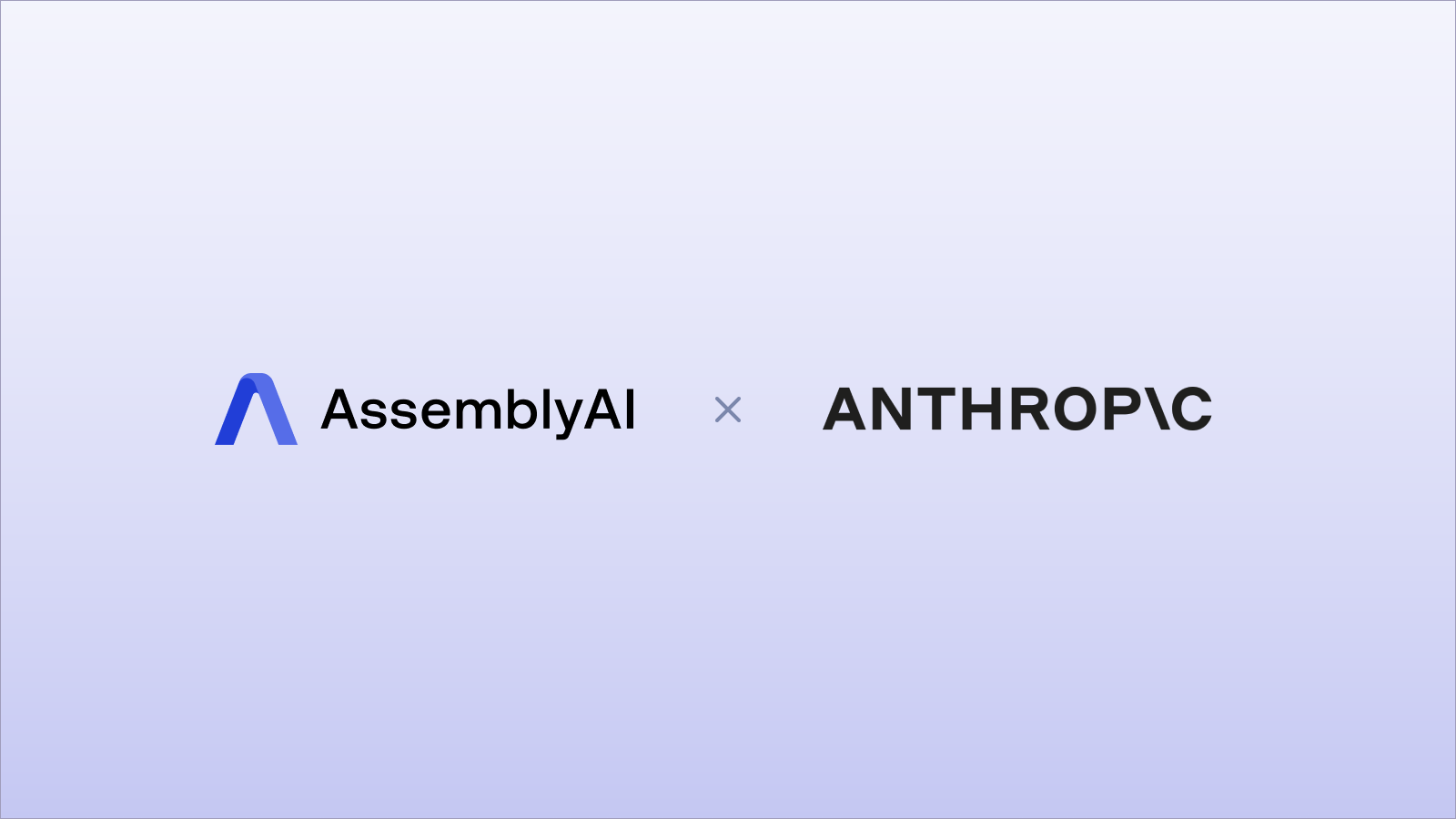AssemblyAI Claude 3 Models Now Available with LeMUR

In the rapidly evolving field of AI-driven speech recognition and processing, AssemblyAI continues to lead the way with its innovative LeMUR framework. LeMUR, AssemblyAI’s advanced tool for leveraging Large Language Models (LLMs) to comprehend and analyze recognized speech, is now even more powerful with the addition of the Claude 3 model family. This update provides users with access to a suite of state-of-the-art models, enhancing the ability to ask questions, generate content, and create summaries from audio data, ultimately delivering superior insights and outcomes for end users.
What’s New with the Claude 3 Model Family?
LeMUR has already become a crucial tool for millions of end users looking to harness the power of LLMs in their audio transcripts. By automatically analyzing transcripts generated by AssemblyAI, LeMUR enables downstream activities such as summarizing audio, answering complex queries, extracting insights, and generating actionable items. The direct integration of LLMs through AssemblyAI’s API simplifies operations for users, eliminating the need to manage multiple AI providers and allowing seamless speech-to-text and audio analysis all within one platform.
Previously, LeMUR was powered by Anthropic’s Claude 2 model family. However, with the new update, AssemblyAI introduces four new Claude 3 models, each tailored to different needs and tasks:
Claude 3.5 Sonnet: The most advanced model to date, it surpasses Claude 3 Opus in various evaluations, offering a perfect balance of intelligence and performance, making it ideal for enterprise-level applications.
Claude 3 Opus: This model is designed for handling complex analyses and longer tasks that involve multiple steps, including advanced mathematics and coding challenges.
Claude 3 Sonnet: Known for its balance between speed and intelligence, this model is optimized for high-efficiency workloads, particularly suited for enterprises that require quick, reliable outputs.
Claude 3 Haiku: As the fastest and most compact model, it delivers near-instant responses, perfect for applications where speed is critical.
Each of these models offers unique advantages, allowing users to fine-tune their speech AI capabilities for optimal performance, speed, and cost-effectiveness. Whether you need a model for quick summaries or detailed analysis, there’s a Claude 3 model to meet every requirement.

Leveraging Advanced Capabilities with LeMUR + Claude 3
The integration of Claude 3 models into LeMUR brings the latest advancements in LLM technology directly to your product suite. By inputting specific prompts into LeMUR, users can control the insights and outputs generated from their audio data. This versatility makes it possible to create:
- Concise Summaries: Quickly summarize lengthy meetings or presentations.
- Detailed Answers: Extract comprehensive answers to intricate questions based on your audio content.
- Actionable Insights: Identify precise action items from customer interactions or internal discussions.
- Custom Analyses: Tailor analyses to meet specific business needs, ensuring relevant and valuable insights.
Starting with simple prompts like “summarize this transcript,” users can progressively advance to more sophisticated tasks such as generating summaries with key discussion points, action items, and sentiment analysis. This adaptability ensures that LeMUR grows with your needs, providing robust support as your requirements evolve.
Cost-Effective Access to Cutting-Edge AI
One of the standout features of AssemblyAI’s integration of Claude 3 models into LeMUR is the cost efficiency. Despite offering access to some of the most powerful LLMs available, AssemblyAI maintains its current LeMUR pricing. This means users can benefit from these advanced capabilities without any additional cost, aligning with Anthropic’s Claude 3 pricing model.
By combining advanced speech AI capabilities with cutting-edge LLMs, AssemblyAI’s LeMUR framework represents a comprehensive, cost-effective solution for businesses looking to leverage AI in their audio data analysis. Whether you are looking to enhance your product offerings or streamline internal processes, LeMUR with Claude 3 provides the tools necessary to achieve superior results.
Here’s how you can call the new Claude 3.5 Sonnet model for transcript summarization in a few lines of code:
import assemblyai as aai
aai.settings.api_key = “YOUR_API_KEY”
# Step 1: Transcribe an audio file.
audio_url = “https://storage.googleapis.com/aai-web-samples/5_common_sports_injuries.mp3”
transcriber = aai.Transcriber()
transcript = transcriber.transcribe(audio_url)
# Step 2: Define a summarization prompt.
prompt = “Provide a brief summary of the transcript.”
# Step 3: Choose an LLM with LeMUR.
result = transcript.lemur.task(
prompt,
final_model=aai.LemurModel.claude3_5_sonnet
)
print(result.response)
Claude 3.5 Sonnet (new)
- Description: The most intelligent model, outperforming Claude 3 Opus on various evaluations with the speed and cost efficiency of Claude 3 Sonnet.
- Cost: Input – $0.003 per 1k tokens, Output – $0.015 per 1k tokens.
Claude 3 Opus (new)
- Description: Suitable for handling complex analyses, longer tasks with multiple steps, and higher-order math and coding tasks.
- Cost: Input – $0.015 per 1k tokens, Output – $0.075 per 1k tokens.
Claude 3 Haiku (new)
- Description: The fastest model designed for executing lightweight actions.
- Cost: Input – $0.00025 per 1k tokens, Output – $0.00125 per 1k tokens.
Claude 3 Sonnet (new)
- Description: Balances performance and speed, optimized for efficient, high-throughput tasks.
- Cost: Input – $0.003 per 1k tokens, Output – $0.015 per 1k tokens.
Claude 2.0
- Description: A legacy model with strong reasoning abilities, providing nuanced responses and enhanced contextual comprehension.
- Cost: Input – $0.015 per 1k tokens, Output – $0.043 per 1k tokens.
Claude 2.1
- Description: Similar to Claude 2.0 but minimizes model hallucination, has a larger context window, and performs better in citations.
- Cost: Input – $0.015 per 1k tokens, Output – $0.043 per 1k tokens.
Claude Instant
- Description: A legacy model optimized for speed and cost, completing requests up to 20% faster than Claude 2.0.
- Cost: Input – $0.002 per 1k tokens, Output – $0.005 per 1k tokens.
This table provides a comprehensive overview of the different Claude models available, their capabilities, and their respective costs.
